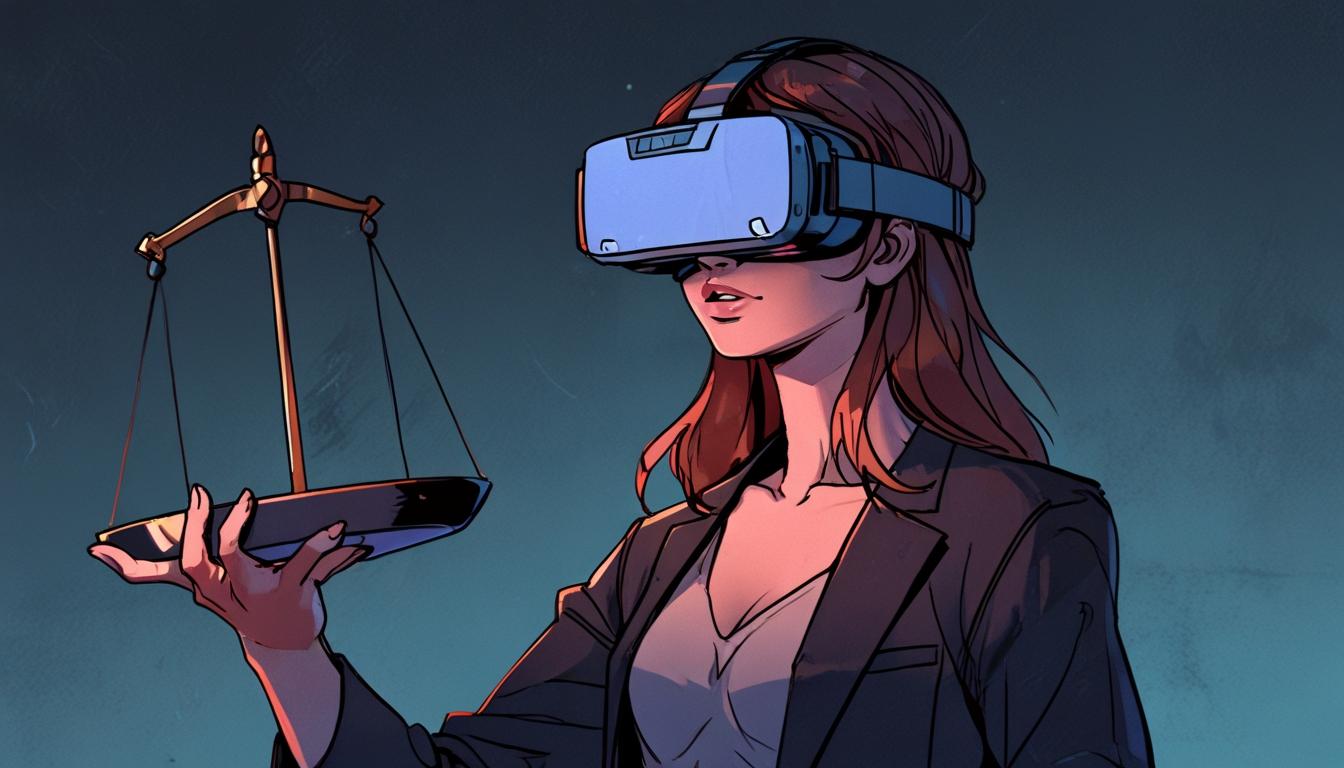Concerns are mounting regarding the prevalence of virtual sexual assaults in the metaverse, a digital environment where immersive experiences are becoming increasingly common. A legal expert has suggested that individuals who commit what are being termed “meta-rapes” should face real-world legal repercussions akin to those for physical sexual assaults.
Professor Clare McGlynn, a law expert at Durham University, expressed alarm over what she describes as a "ticking time bomb" within the digital realm. Her research, co-authored with Carlotta Rigotti of Leiden University, highlights that the number of such incidents is on the rise, with many going unpunished in the largely unregulated spaces of the metaverse. This situation, according to Professor McGlynn, could result in a significant increase in reported cases in the coming years.
Her paper, published in the Oxford Journal of Legal Studies, cites a notable police investigation into an incident involving a teenager who reported being “gang-raped” in a virtual setting. Police concluded that the psychological trauma experienced by this victim mirrored that of someone who had experienced a real-life assault, marking a significant consideration for law enforcement in addressing digital crimes.
In the metaverse, players engage using virtual reality headsets, gloves, and bodysuits, which create a heightened sense of physical interaction. This technology means players can feel sensations as if they are happening to their actual bodies, making the experience of an assault particularly distressing. Professor McGlynn pointed out that the law defines assault as any form of unwanted physical contact, which could potentially extend to interactions with one’s avatar.
As the metaverse continues to expand, with an increasing number of users, concerns over safety have spurred calls for more robust legal frameworks to protect individuals in online environments. The professor noted, “Very young children access these spaces with ease and… as engagement explodes, so will the risks.”
Past incidents have raised alarms about the vulnerability of users within these virtual realms. For instance, Nina Jane Patel, a mother from south London, reported a highly distressing encounter in Facebook’s Horizon Venues, wherein her avatar was groped by three male characters while other users watched. Although Horizon Venues has since introduced safety measures, such as a “safe zone” for avatars, the efficacy of these measures and their ability to prevent such incidents remain in question.
The legal landscape around online offences is prompting discussions about the need for updated laws. Graeme Biggar, the head of the National Crime Agency, indicated that police must be prepared to treat online incidents as serious crimes due to their real-life implications.
Meta, the parent company of Facebook, has stated its commitment to user safety and continues to seek improvements as it learns from user interactions in these environments. The ongoing discourse highlights a crucial intersection of technology, law, and user safety, as legal experts and authorities grapple with the challenges posed by emerging digital platforms.
Source: Noah Wire Services
